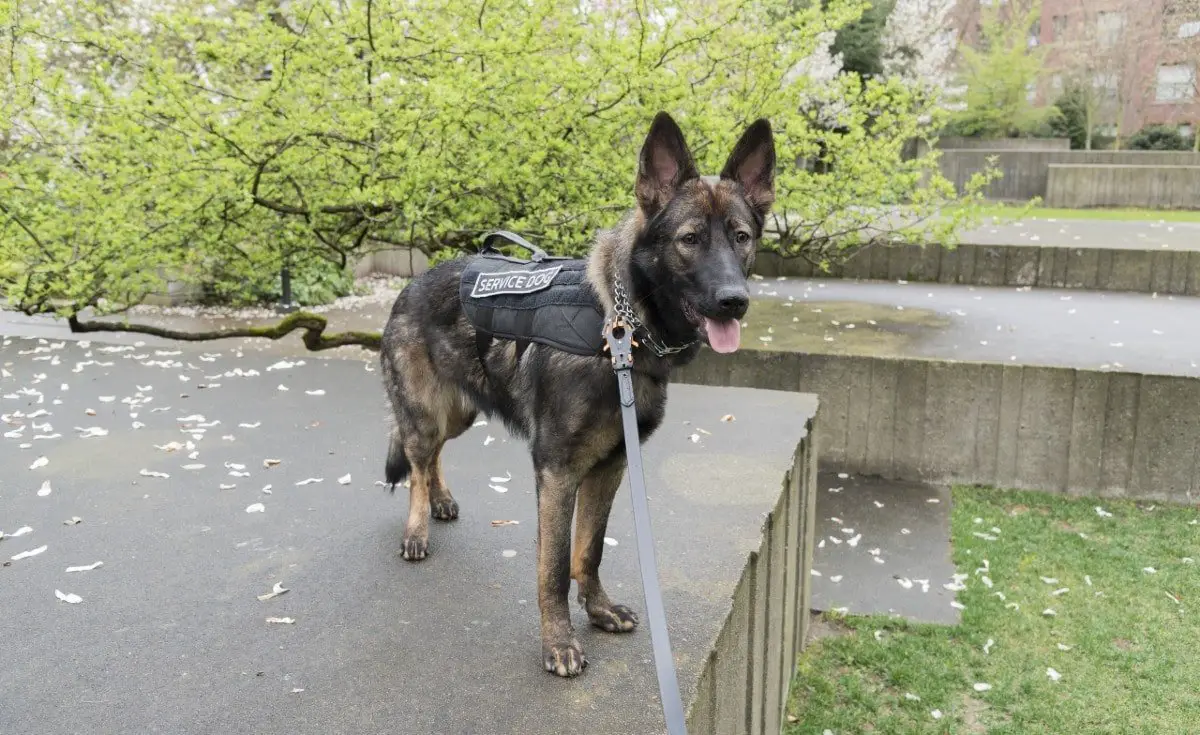New California law, which will take effect January 1st, 2022, will make it much more difficult for both businesses and individuals to take part in emotional support dog fraud while protecting the rights of those who have genuine service animals.
California Governor Gavin Newsom signed the AB-468 bill in September 2021, which was the first law of this type in the United States.
The law imposes new rules on companies that sell dogs to support emotional support animals (ESAs) and businesses that sell ESA accessories such as ID cards, harnesses, tags, and other items.
New restrictions also apply to health professionals who provide ESA documents.
The new rules are designed to decrease the amount of fake and fraudulent emotional support dogs in the state.
Emotional support dogs do not qualify as service animals. Therefore they do not have all-inclusive access to public spaces. Legit emotional support dogs have certain privileges that regular pets typically do not have access to.
One privilege of ESAs is housing. Landlords or rental associations who do not rent or lease to pets must provide reasonable accommodations for emotional support animals. They cannot charge pet deposits or rental fees for the animal.
Another perk, ESAs were allowed to travel in airplane cabins with their handlers for free until recently. Airlines have begun pushing back due to aggression and behavior problems from fraudulent emotional support dogs in the friendly skies.
Service dogs do not have a national registry or certification program, nor do emotional support animals.
With no official program or certification, anyone with a letter from a therapist could claim their pet’s status as an emotional support dog.
A new online industry quickly emerged, letting anyone answer multiple-choice questions and then purchasing an “official ESA letter” that instantly makes their pet an emotional support animal. No training or temperament qualifications are required.
For Californians beginning January 1st, 2022, this is going to change.
Businesses Selling Emotional Support Dogs
Under the new law, a business that sells or provides a dog for use as an ESA will have to provide a written notice to the buyer or recipient of the dog stating that:
1. The dog does not have the special training required to qualify as a guide, signal, or service dog.
2. The dog is not entitled to the rights and privileges accorded by law to a guide, signal, or service dog.
3. Knowingly and fraudulently representing oneself to be the owner or trainer of any canine licensed as, to be qualified as, or identified as, a guide, signal, or service dog is a misdemeanor.
Businesses Selling Emotional Support Dog Equipment
A person or business that sells or provides a certificate, identification, tag, vest, leash, or harness specifically for an emotional support animal will be required to provide the same written notice to the buyer or recipient.
Certification from Health Providers for Emotional Support Dogs
The new law will also prohibit healthcare practitioners from providing documentation relating to an individual’s need for an emotional support dog unless the health care practitioner:
1. Holds a valid, active, license to provide professional services within the scope of the license in the jurisdiction where the documentation is provided.
2. Establishes a client-provider relationship with the individual for at least 30 days prior to providing the documentation.
3. Completes a clinical evaluation of the individual regarding the need for an emotional support dog.
4. Provides notice to the individual that knowingly and fraudulently representing oneself to be the owner or trainer of any canine licensed as, to be qualified as, or identified as, a guide, signal, or service dog is a misdemeanor.
Violating these requirements subjects the health care practitioner to discipline from the licensing board.
The new law’s effectiveness to stop emotional support dog fraud is yet to be determined. Legislators, Guide Dogs for the Blind and Canine Companions for Independence, are optimistic.
h/t Bill Text AB-468 Emotional Support Animals






















